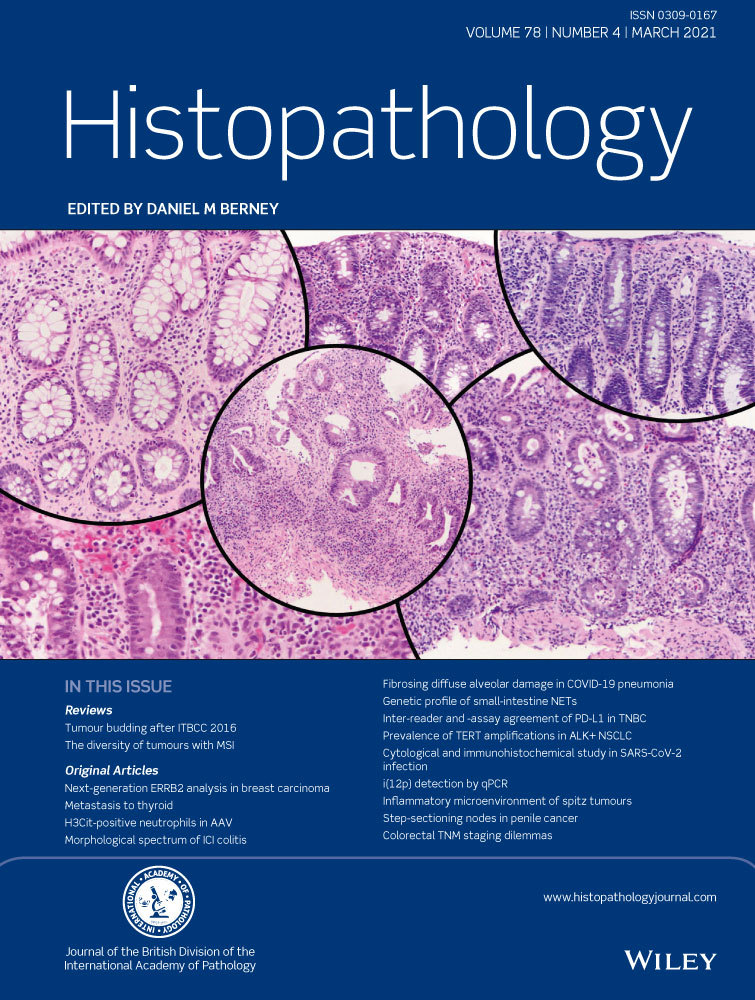Driver mutations occur frequently in metastases of well-differentiated small intestine neuroendocrine tumours
Abstract
Aims
To investigate the clinicopathological significance of driver mutations in metastatic well-differentiated small intestine neuroendocrine tumours (SI-NETs).
Methods and results
Whole genome sequencing (WGS) of 35 metastatic SI-NETs and next-generation sequencing (NGS) of eight metastatic SI-NETs were performed. Biopsies were obtained between 2015 and 2019. Tumours were classified according to the 2019 World Health Organization classification. WGS included assessment of somatic mutations in all cancer-related driver genes, the tumour mutational burden (TMB), and microsatellite status. NGS entailed a cancer hotspot panel of 58 genes. Our cohort consisted of 21% grade 1, 60% grade 2 and 19% grade 3 SI-NETs. Driver mutations were identified in ~50% of SI-NETs. In total, 27 driver mutations were identified, of which 74% were in tumour suppressor genes (e.g. TP53, RB1, and CDKN1B) and 22% were in proto-oncogenes (e.g. KRAS, NRAS, and MET). Allelic loss of chromosome 18 (63%), complete loss of CDKN2A and CDKN1B (both 6%) and CDKN1B mutations (9%) were most common. Potential targetable genetic alterations were detected in 21% of metastasised SI-NETs. All tumours were microsatellite-stable and showed low TMBs (median 1.10; interquartile range 0.87–1.35). The Ki67 proliferation index was significantly associated with the presence of driver mutations (P = 0.015).
Conclusion
Driver mutations occur in 50% of metastasised SI-NETs, and their presence is associated with a high Ki67 proliferation index. The identification of targetable mutations make these patients potentially eligible for targeted therapy.
Conflicts of interest
The authors declare that there is no conflict of interest that could be perceived as prejudicing the impartiality of the research reported. No funding was received.
Open Research
Data Availability Statement
The data that support the findings of this study are available from Hartwig Medical Foundation. Restrictions apply to the availability of these data, which were used under license for this study. Data are available at https://www.hartwigmedicalfoundation.nl/applying-for-data/ with the permission of Hartwig Medical Foundation.




